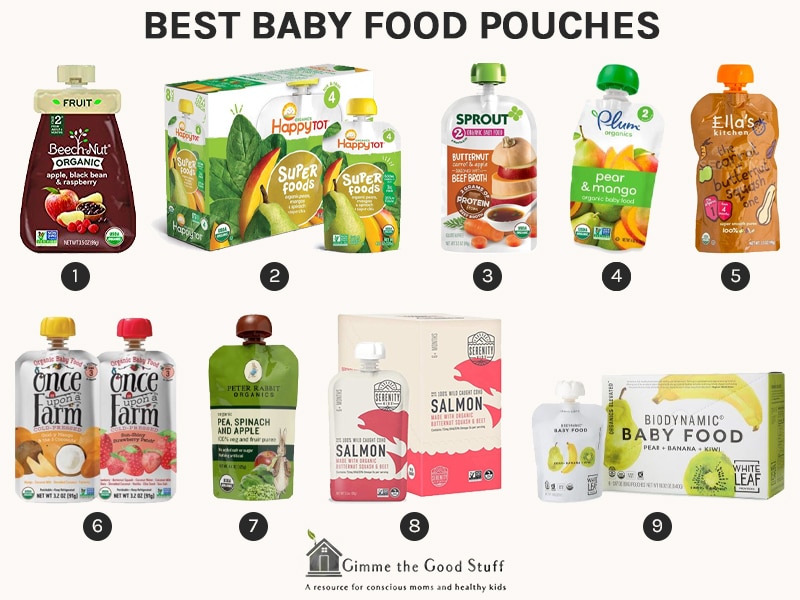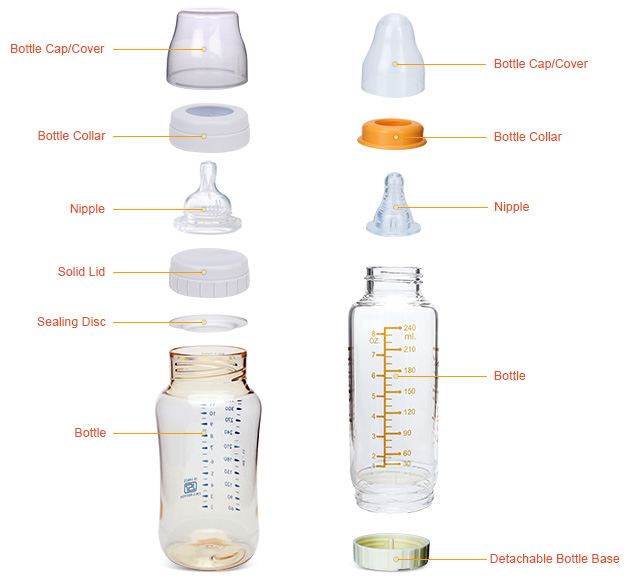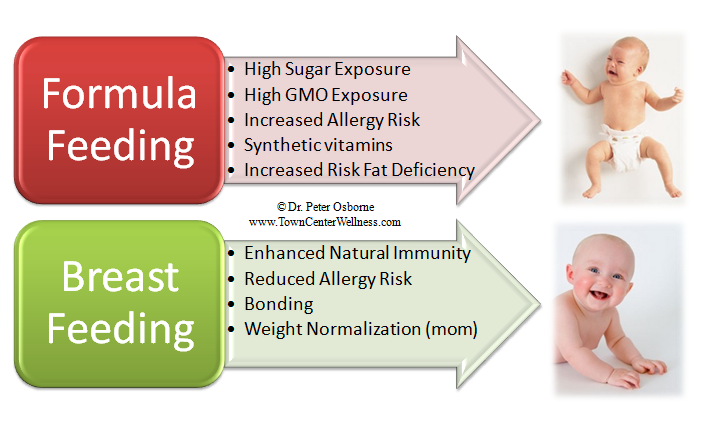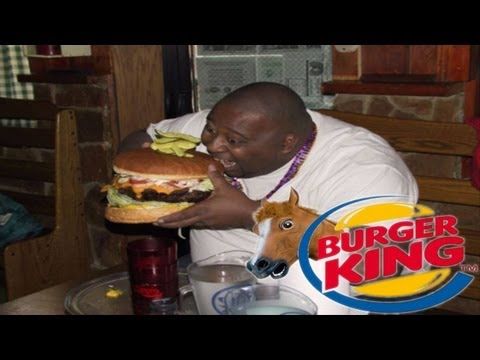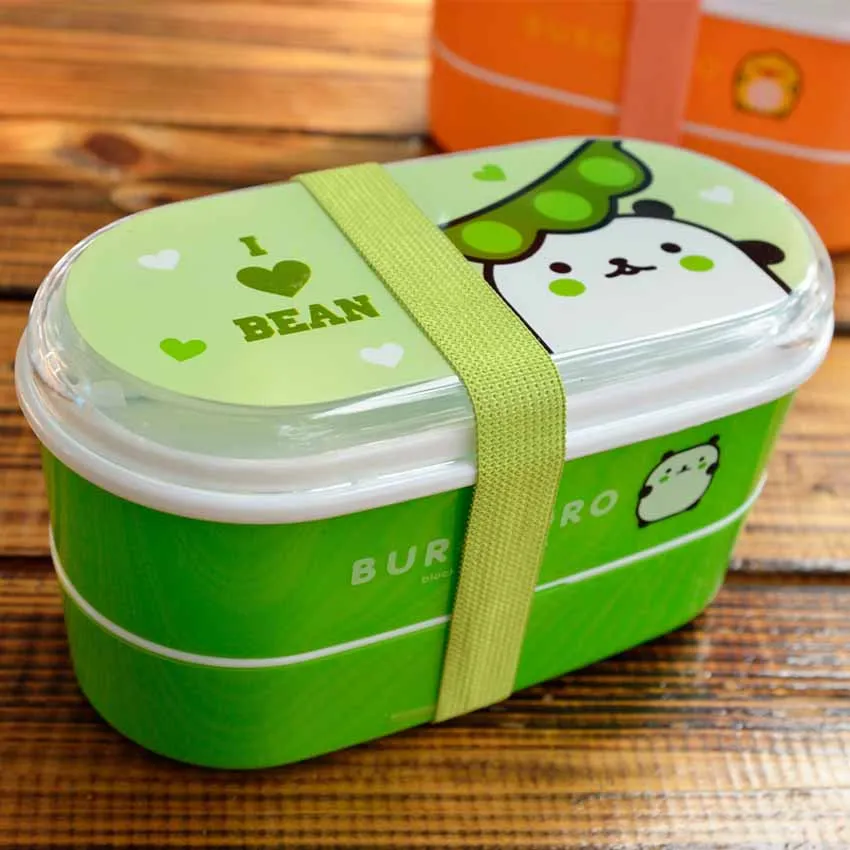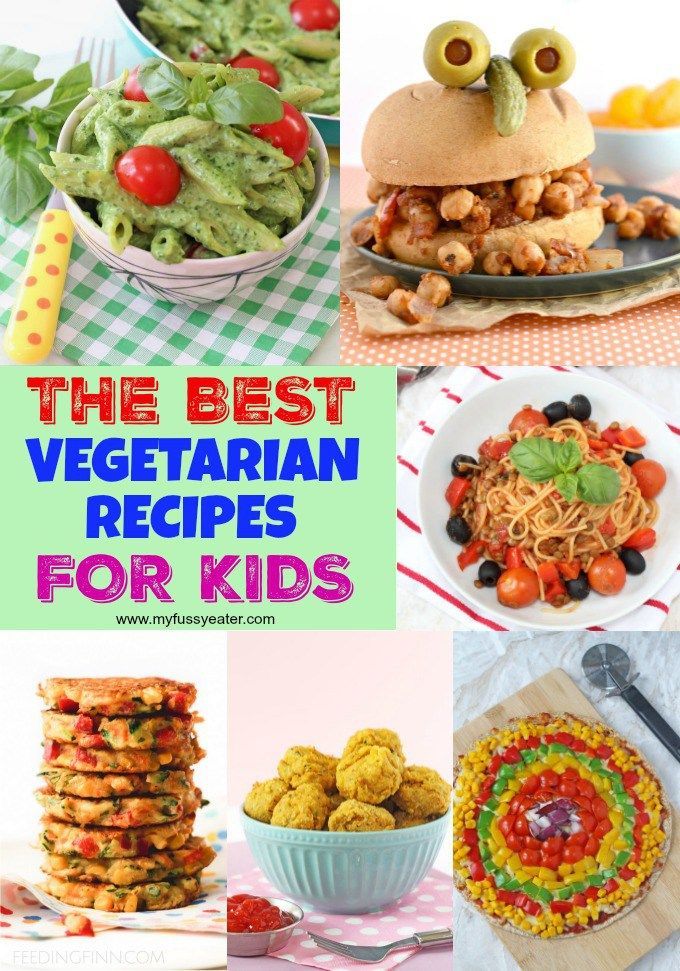Oh baby food pouches
The Dark Truth About Puree Pouches — Oh Baby
Puree pouches are super convenient, they contain fruits & vegetables, and most importantly kids love them, but are they really a healthy option for your baby? They may seem just as wholesome as homemade, but unfortunately that’s not the case… even with ‘organic’ on the label.
How they’re made
The first step in making store-bought puree happens at a mass producer where fruits and vegetables are boiled down using ultra-high heat processing to create a shelf-stable pulp. This pulp is then shipped to various baby food manufacturers who combine them in their own way, and then boil them again with a second round of ultra-high heat processing.
Fruits and vegetables contain water-soluble vitamins and enzymes that are sensitive to heat. So while the high temperature ensures that it remains shelf-stable by killing all of the “bad stuff”, sadly it also destroys most of the nutritional value. The result is a syrup that’s high in sugar, low in nutrients, and no longer resembles an actual fruit or vegetable. Store-bought puree also doesn’t contain the fiber, fat or protein necessary to help slow the blood sugar spike that these little pouches inevitably cause. Unfortunately, what goes up must come down and when blood sugar eventually drops after the sugar-rush, meltdowns and tantrums are more likely to ensue.
A baby’s first food experiences build their preferences for the future. Children who eat sweet processed baby food have an increased chance of developing a lifelong preference for sweet processed food. Even pouches boasting flavors that normally aren’t considered sweet, like kale & quinoa, are primarily filled with an overpowering and addictively sweet fruit reduction.
A warning masked as a comfort
Even though strawberries are a common food for babies to react to (often with a rash), they’re still commonly added to store-bought purees. However, the manufacturers of baby food ‘reassure’ parents not to worry, saying they use such high temperatures to process their pureed strawberries that it ‘destroys’ the protein responsible for the allergic response. As if to brag, they go on to say that temperatures used to cook strawberries at home could not reach a high enough heat to effectively destroy these same proteins.
As if to brag, they go on to say that temperatures used to cook strawberries at home could not reach a high enough heat to effectively destroy these same proteins.
Am I the only one that sees this as a terrible red flag?
What about homemade puree in reusable pouches?
While the ingredients inside will be much more nutritious, there are still several reasons to limit your little one’s use of pouches.
Puree pouches don’t prepare your baby for variation in color, texture & flavor.
Children who consume pureed foods for a longer period of time have been shown to be increasingly resistant to different textures and flavors later (read = picky).
While squash & pea may taste different than banana & apple, all store-bought purees are made to taste sweet, and therefore lack the diversity to truly cultivate a well-rounded, adventurous palate.
I often hear parents say that their baby or toddler prefers pouches over other foods. To me that’s a very clear indicator that the reliance on puree pouches is having a negative impact on them. Continuing to offer these pouches may feel easier in the short term, but if that’s all picky eaters want to eat, I can firmly guarantee that giving them more pouches will only breed more pickiness.
Continuing to offer these pouches may feel easier in the short term, but if that’s all picky eaters want to eat, I can firmly guarantee that giving them more pouches will only breed more pickiness.
Puree pouches don’t allow baby to interact with food.
Seeing, touching and smelling food are all critical components necessary for feeling satiated, and the lack of these key factors while eating could significantly disrupt the body’s internal cues of fullness.
Interacting with food is also important for babies learning how to self-regulate appropriate portions, rather than mindlessly slurping back a pouch until it’s finished.
Puree pouches don’t teach baby about real food.
Real, fresh foods allow babies to begin developing an appreciation for what individual foods taste like. Then even if they go through that age appropriate picky phase during toddlerhood, those who started with a solid foundation will likely return to being an adventurous eater much more quickly, rather than letting pickiness carry well into their school-aged years.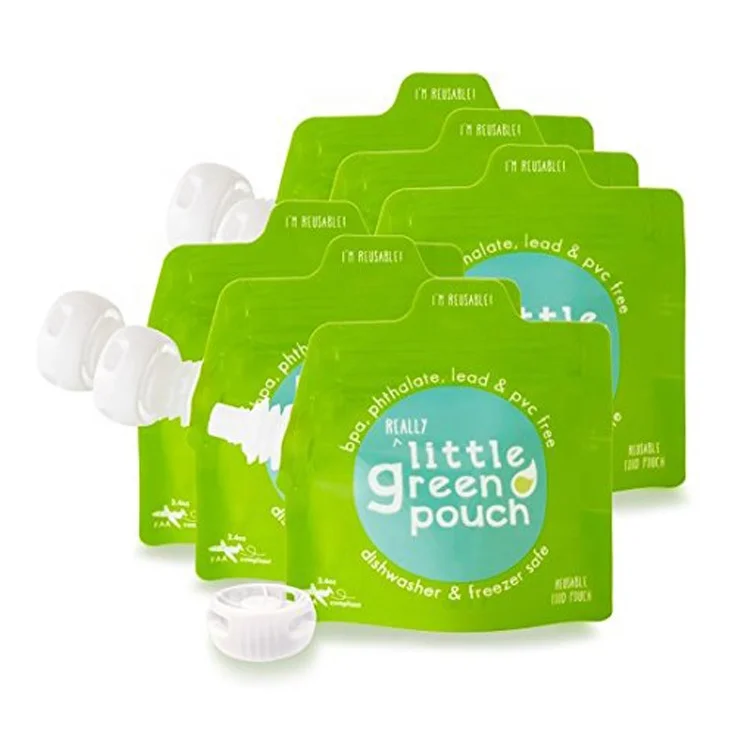
I know that parents love their convenience, but the reality is that puree pouches certainly aren’t the nutritious meal that they’re marketed to be. When I’m on the go with my babies and I don’t have time to make a proper meal, we’ll bring easy travel foods like an avocado, no-salt added canned salmon, nut butter, or freeze-dried fruit.
Are puree pouches the most horrible thing you can give to your child? Certainly not, but our culture’s current reliance on pouches is most definitely doing our children a disservice.
Once Upon a Farm | Clean Baby Food & Kids' Snacks
Organic snacks and meals trusted by parents and loved by little ones.
SHOP NOW
Subscribe & Save
Here's How It Works
Choose from our endless variety and switch it up before every delivery!
Pick Your Plan
Customize Your Box
Get Goodness Delivered
Get Started
Always Organic
Whole Ingredients
Nutrient-Rich
Farm-to-Fridge
Freshly Frozen
No Added Sugar
Dairy Free
No Preservatives
No GMO's
Nothing Artificial
Always Organic
Whole Ingredients
Cold-Pressed
Nutrient-Rich
Farm-to-Fridge
No Added Sugar
Dairy Free
No Preservatives
No GMO's
Nothing Artificial
Learn to Taste
Expand their palate with new flavors, textures, and combos
Learn to Grab
Practice fine motor skills (playing with food encouraged!)
Learn to Feel Full
Help your little one listen to their body’s hunger cues
First Clean Label Baby Food & Kids Snack Brand
LEARN MORE
We Don't Just Follow Standards, We Set Them
LEARN MORE
This is a carousel.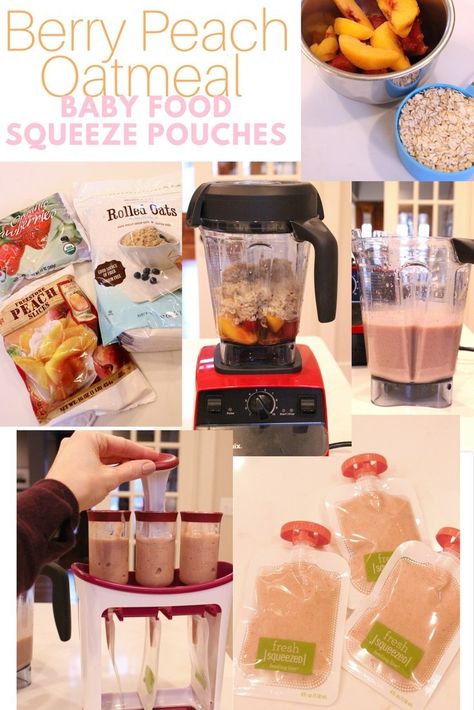 Use Next and Previous buttons to navigate, or jump to a slide with the slide dots.
Use Next and Previous buttons to navigate, or jump to a slide with the slide dots.
"Best Kids Food Brand 2021!"
"Stepped-Up Nutrition for Babies!"
“With Once Upon a Farm, we know our kids are getting real food packed with nutrients!”
The Once Upon a Farm Standards
The O'Farm Standards Means Something We have high standards, and...
Read more
Meet the First Baby Food to be First 1,000 Day Promise Certified
We’ve always held ourselves to incredibly high standards, but...
Read more
Now at Whole Foods: Once Upon a Farm Organic Baby Food
Whole Foods shoppers—we’ve got good news for you! You...
Read more
Pediatrician explained why you shouldn't give puree from bags to children
From the soft pack, the puree only needs to be squeezed into the child's mouth. Later, sucking the puree out of the bag, he will learn himself. Pouch is convenient on the road, on walks and at home. Keeps well without refrigeration. The child loves them very much and asks for more. Lure without a spoon, a dirty table and bibs. At first glance, a real find for busy parents.
Not surprisingly, already in 2019, the New York Times wrote: “In the US, spiders account for 25% of all baby food sales.” Shelves with mashed potatoes in plastic can also be found in Russia. The choice of names and tastes is growing every year.
But are spiders as useful as they are convenient? What do pediatricians, nutritionists, and nutritionists say about spiders?
Experts agree that puree in soft packs does more harm than good.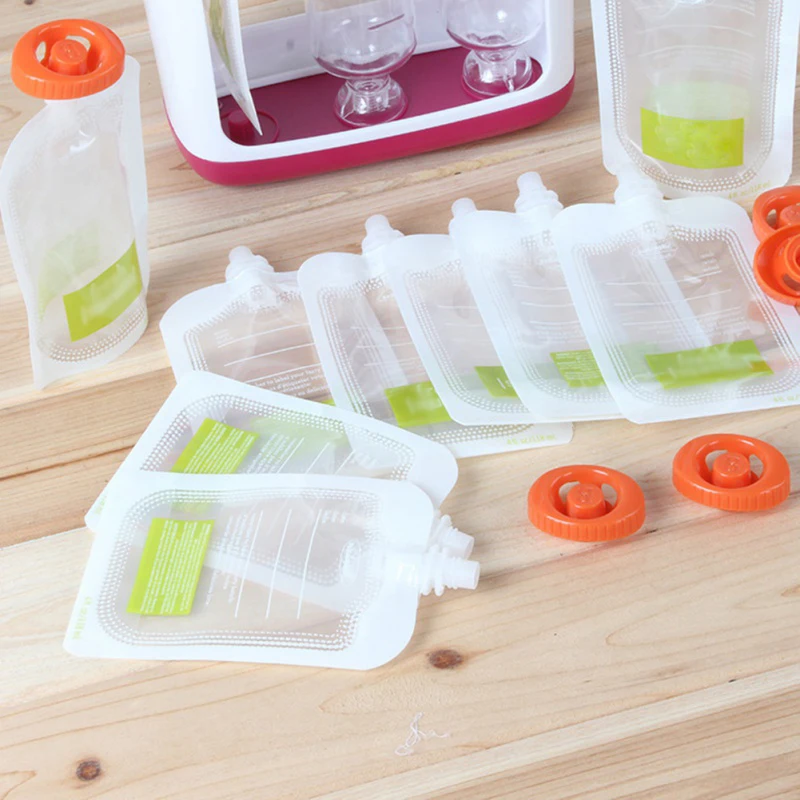 And in fact, there is practically no benefit. And that's why.
And in fact, there is practically no benefit. And that's why.
First, the habit of eating out of soft plastic packaging, sucking out the puree, interferes with the correct eating behavior of the child. For development, it is very important that the baby sees food, learns to handle a spoon, and can bite and chew pieces. So that he can study the product with his hands, lips, tongue. And at the same time there would be an opportunity to experiment with your food.
The introduction of complementary foods serves the child not only as a source of additional nutrition. This is also a transitional time from dairy nutrition to a common table. Gradually, the child learns complex fine motor skills. Studies have shown that children on spiders later master the bite of food.
- Photo
- Getty Images
It is very important that the baby is in contact with the parent, and the food itself takes place in a relaxed atmosphere, at the dinner table.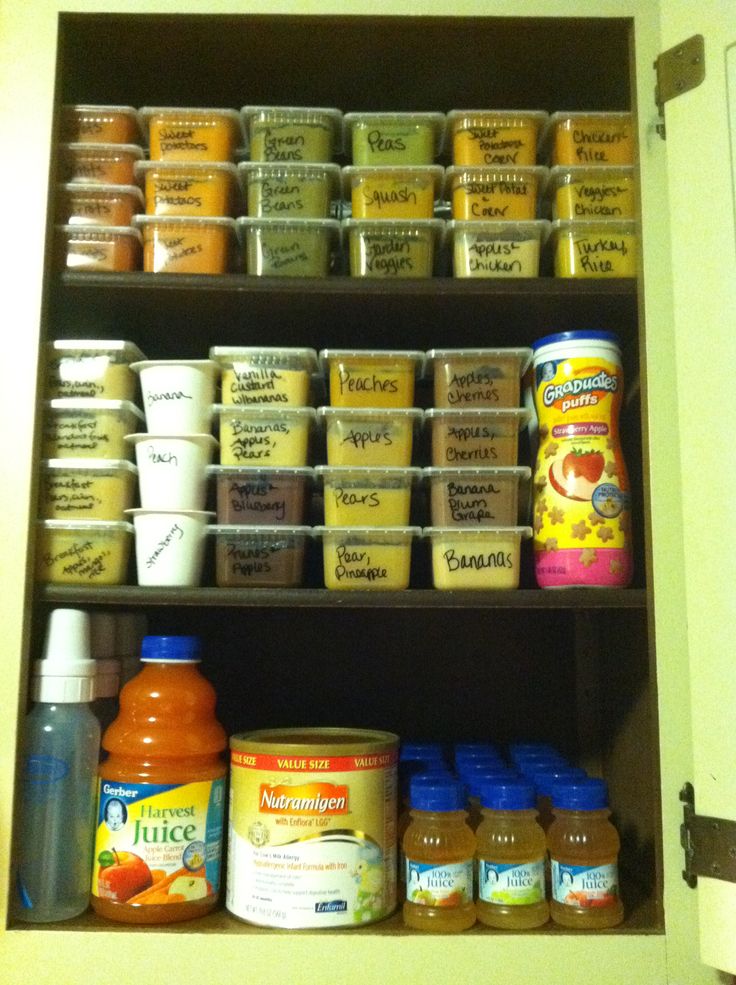 Eating for a baby is not only swallowing food from a package. This is an intensive communication with parents. Cognition of speech, signals, observation. The whole event for the baby. This is how his future eating behavior and addictions are formed.
Eating for a baby is not only swallowing food from a package. This is an intensive communication with parents. Cognition of speech, signals, observation. The whole event for the baby. This is how his future eating behavior and addictions are formed.
Sucking a semi-liquid mass out of the package disrupts the development of normal eating and motor skills if the baby eats this way all the time. Moreover, it will be more difficult for a child to get used to normal multi-component and unsweetened food when a lighter and faster alternative is already well known - pouch.
Secondly, even if the package says “no added sugar”, they still contain sugar. Fruit or vegetable puree may be sugar-free, but when vegetables or fruits are processed, pureed, and then heavily concentrated, the percentage of carbohydrates can be much higher than their content in whole fruit. So, for example, a fresh peach contains 9.5 g of carbohydrates per 100 g, and peach puree labeled “sugar free” contains 15.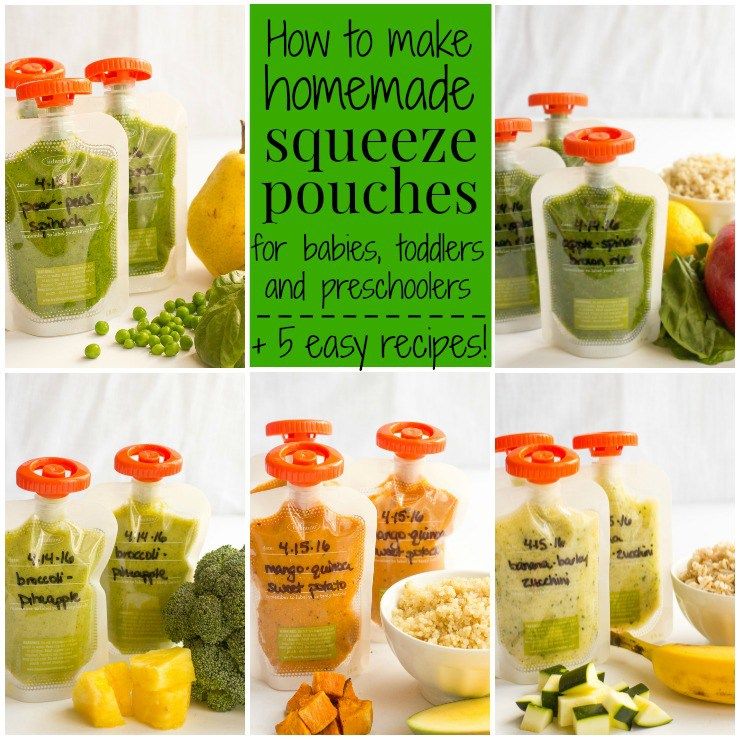 1 g / 100 g of the product. One and a half times more!
1 g / 100 g of the product. One and a half times more!
For the same reason, European and American associations of pediatricians have excluded fruit juices from the diet of children under 1 year of age. Russian pediatricians recommend juices after 8 months. Not only because they contain more sugar, but also because juices are devoid of fiber that is useful for the baby.
- Photo
- Getty Images/iStockphoto
In addition, pouch puree is almost always based on some sweet fruit, not low-carb vegetables, even if they are large on the packaging. It is also not uncommon for children to receive a pouch even if they are not hungry. It happens that parents try to soothe their crying baby in this way and thereby overfeed him.
Excess carbohydrates threaten not only caries, but also a more serious problem - obesity. It is childhood obesity that is becoming one of the most difficult tasks in pediatric medicine.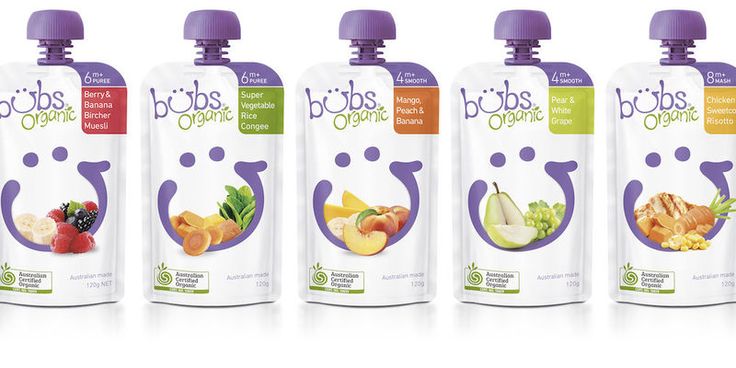 Indeed, according to recent studies, obese children under the age of three will remain obese in adulthood with a probability of 90% (A. Körner et al., 2019). That is, a fat child has practically no chance of being slim in his adult life.
Indeed, according to recent studies, obese children under the age of three will remain obese in adulthood with a probability of 90% (A. Körner et al., 2019). That is, a fat child has practically no chance of being slim in his adult life.
And thirdly, let's not forget that spiders are a large amount of plastic, with an overabundance of which the entire planet is struggling. Soft plastic packaging cannot be recycled, due to the fact that it is made from many layers of different polymeric materials, each with its own properties.
Tags
- Question to Pediatrician
Readers today
How a girl who was born with mermaid syndrome lives now
No, this is not a swimsuit, but a dress: Irina Shayk in a provocative look
John Wick in love: Keanu Reeves kissed a friend on the red carpet
Online broadcast and funeral at sunset: 8 features of the burial of Elizabeth II
Rare photo: Yevgeny Petrosyan together with his three-year-old son and wife
Why mashed potatoes in bags are harmful for children: two reasons a bag of different food in case the baby gets hungry.
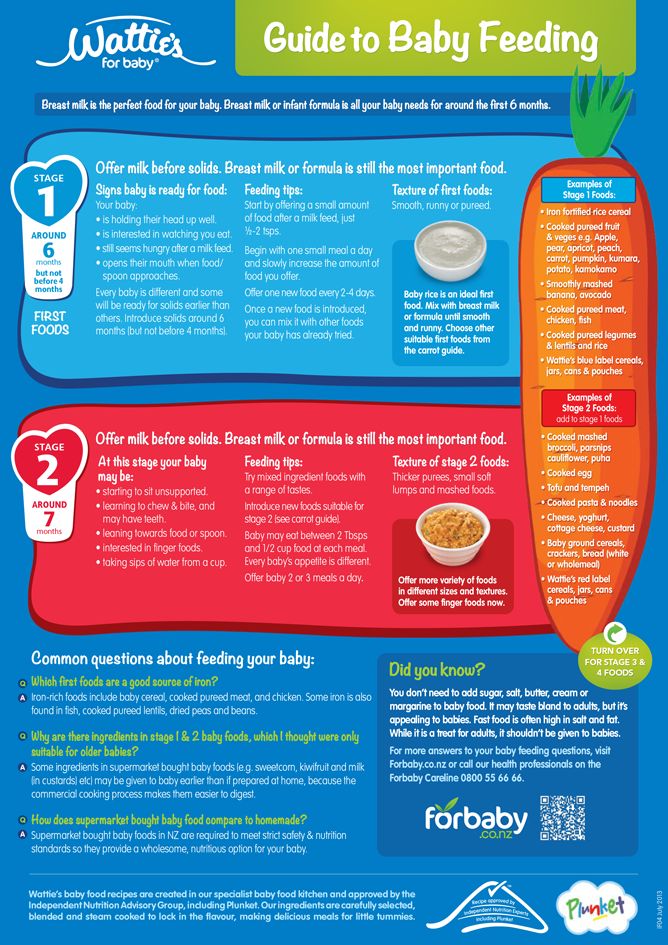 And look for a kid-friendly cafe where you can feed your child not a cheeseburger and pizza, but something more suitable, too. And all thanks to purees in bags.
And look for a kid-friendly cafe where you can feed your child not a cheeseburger and pizza, but something more suitable, too. And all thanks to purees in bags. - Photo
- nicoletaionescu/iStock/Getty Images Plus/Getty Images
They have a lot of advantages: you don't need a spoon to eat it, just squeeze it into your mouth and swallow it. The child is guaranteed not to get dirty, because it is very difficult to spill something from a tube bag. Such purees are very popular with children, which is also important. And their composition seems very useful - at least at first glance.
But such a miracle food also has disadvantages. Pediatric nutritionist Edwina Kennedy named at least three.
Minus 1: too much sugar
Even if no extra sugar is added to the puree, it is still there - in its simplest form, which is easily absorbed into the bloodstream. The thing is that during the processing of fruits in puree, the fiber is destroyed, but the sugar remains.
The thing is that during the processing of fruits in puree, the fiber is destroyed, but the sugar remains.
Some of the packaged purees end up with almost 10 grams of sugar. Such a portion can only be allowed to be eaten by a child of four years and older, but not by a baby. Excess sugar does not lead to anything good: it spoils the teeth, causes excess weight gain, and in the long run leads to diabetes.
The amount of sugar children can eat per day depends on their age. For children four to six years old, it should be limited to a maximum of 19 grams per day. Children seven to ten years old can eat no more than 24 grams, and eleven and older - no more than 30 grams. Popular children's treats contain a killer amount of sugar: one can of cola (35 grams of sugar) or one Mars bar (33 grams) is already more than the maximum amount of sugar a child can eat in a day. And having eaten a plate of sweet cereal (24 grams of sugar) for breakfast, the children are already exhausting their daily limit before they even leave the house.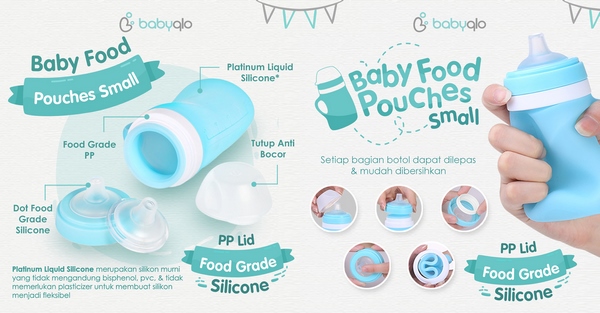
- Photo
- Di_Media/iStock/Getty Images Plus/Getty Images
Minus 2: Doesn't get used to vegetables
Vegetables in the form of puree and in kind are two big differences. The taste of vegetables in puree is most often masked by fruit sweetness, so the baby will not feel the true taste. But his taste preferences will develop towards cravings for sweets.
The texture, smell, even the feel of real vegetables will be very different from mashed potatoes. Therefore, a child may not even recognize an ordinary beet or carrot when he sees it in its original form. And why does he love them?
Experts recommend using fewer sachets and jars of baby food, convenient as it is for busy parents, and balancing sweet, sour and bitter tastes if you make your own meals.
Minus 3: the child does not learn to chew
It's all about the consistency of food from bags. It does not need to be chewed, it just needs to be swallowed. It's so easy to overeat without any effort. Of course, who wants to chew carrots themselves if you can get them already crushed. As a result, forums where moms communicate are filled with questions about how to teach a child to chew at least something that is not passed through a blender. Moreover, the nutritionist warns that the child may regress: he will stop chewing, even if he has already learned how to do it.
It does not need to be chewed, it just needs to be swallowed. It's so easy to overeat without any effort. Of course, who wants to chew carrots themselves if you can get them already crushed. As a result, forums where moms communicate are filled with questions about how to teach a child to chew at least something that is not passed through a blender. Moreover, the nutritionist warns that the child may regress: he will stop chewing, even if he has already learned how to do it.
Problems with chewing also have a long-term unpleasant prospect. If milk teeth do not fulfill their function, that is, they do not grind food, they may fall out ahead of time. And this can already lead to various pathologies of a dental nature.
Endocrinologist, nutritionist, nutritionist, gynecologist
Personal website
“Children all over the world are literally forced to eat high carbohydrate foods. Even in the dairy kitchen, packaged juices are distributed, which, in fact, are a solution of sugar in water.